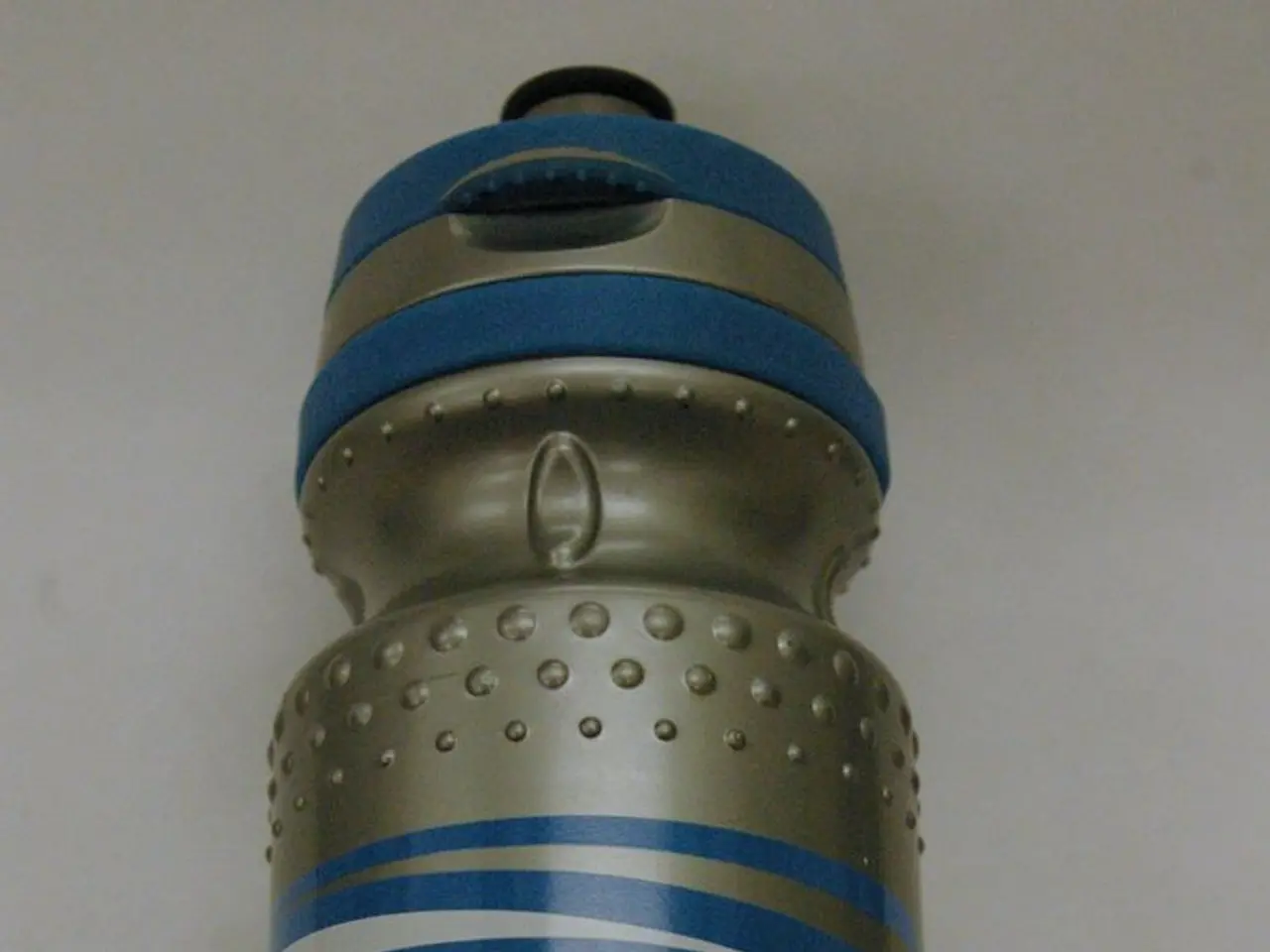Non-Invasive Prostate Examination through Urine Analysis: A Possible Reduction in Unnecessary Biopsies for Men
Stepping into the complex world of prostate cancer screenings, it's clear that for many men, the process can be nerve-wracking. Traditional PSA screenings often lead to false positives, paving the way for unnecessary and uncomfortable biopsies.
As an unwelcome outcome, these invasive tests might even cause long-term urinary incontinence due to multiple needle sticks. Despite abandoning routine PSA testing, the number of metastatic prostate cancer cases has noticeably increased, with diagnoses climbing from 4% to 8% between 2003 and 2017.
The 5-year survival rate for metastatic prostate cancer is a dismal 31%, in stark contrast to the nearly 100% survival rate for prostate cancer caught at an early stage. A new test named MyProstateScore 2.0 (MPS2) might just be the solution we've been waiting for.
Developed by researchers at the University of Michigan, MPS2 is a urine test that screens for prostate cancer by focusing on 18 genes associated with high-grade tumors. As Dr. Arul Chinnaiyan, a professor at the University of Michigan, reveals, "If you're negative on this test, it's almost certain that you don't have aggressive prostate cancer."
After studying over 58,000 prostate cancer-associated genes, researchers narrowed their focus to 54 genes uniquely overexpressed in cancers classified as Grade Group 2 (GG2) or higher. Prostate cancers are ranked from least (GG1) to most (GG5) dangerous.
They tested those 54 genes against urine samples from 761 men with elevated PSA who were scheduled for biopsy. The effort resulted in 18 genes that consistently correlated with high-grade cancer in the biopsy specimens - the same genes MPS2 now tests for.
When put to the test against over 800 urine samples, MPS2 accurately identified 95% of GG2 prostate cancers and an astonishing 99% of cancers that were GG3 or higher. When estimates of the prostate's size (or volume) were factored in, test accuracy soared even higher.
So, how many men could have dodged an agonizing and unnecessary biopsy if MPS2 had been used? A staggering 41% if prostate volume was included in the measure, and 37% if it wasn't. With the standard PSA blood test, only 26% of biopsies could have been avoided.
Compared to MRI scans, which can predict whether a prostate tumor is likely to spread, MPS2 offers some advantages. As Dr. Marc Garnick of Harvard Medical School puts it, "This research is very encouraging, since many men in rural areas may not have access to prostate MRI machines or the added sophistication that is needed in interpreting these MRI scans. A widely available urine test may eventually help provide more precision in determining who should undergo a prostate biopsy."
In a brilliant update, researchers at the University of Michigan Health Rogel Cancer Center have clinically validated the urine test, making it possible to bypass these invasive procedures for men who stand little chance of benefiting from them. By modifying the urine collection approach, the MPS2 test can now detect markers for prostate cancer without requiring a prior rectal exam.
Now for some good news for men who might be at a higher risk of prostate cancer, or those interested in taking preventive measures:
- The Mediterranean Diet, rich in lycopene and selenium, is recommended by experts as a means to reduce the chances of being diagnosed with prostate cancer.
- Maintaining a healthy weight is crucial. Numerous studies have shown that hormones secreted by excess fat cells can contribute to aggressive prostate cancer. Abdominal fat, in particular, has been associated with death from prostate cancer.
- Exercise has even been found to serve as a roadblock to cancer progression, benefiting men diagnosed with prostate cancer as well.
Before making any decisions, it's worth discussing testing options with your doctor. After all, you might be eligible for the MPS2 urine test, which can greatly enhance the precision of prostate cancer detection.
As an added bonus, don't forget to check out The Alkaline Secret to Ultimate Vitality for tips on boosting your energy, losing weight, soothing digestion, avoiding illness, and achieving wellness!
References:
New urine test may help some men with elevated PSA avoid biopsy - Harvard Health Publishing
Development and Validation of an 18-Gene Urine Test for High-Grade Prostate Cancer - JAMA Oncology
Put your love into action. Get screened. - American Cancer Society
Should I Be Screened? - Prostate Cancer Foundation
- The complexities of prostate cancer screenings have made workplace wellness programs more crucial, as men often experience stress and anxiety regarding medical conditions like prostate cancer.
- A shift in the approach to screening is necessary, with the rise of chronic diseases like cancer, and the 5-year survival rate for metastatic prostate cancer being significantly lower compared to early-stage diagnoses.
- Science has been scrutinizing traditional methods such as PSA tests, leading to the development of advanced therapies and treatments like the MyProstateScore 2.0 (MPS2) urine test.
- Mental health is equally important, as the fear and uncertainty surrounding medical conditions can have detrimental effects on overall well-being.
- To improve health and wellness, it's recommended to maintain a Mediterranean Diet, rich in lycopene and selenium, keep a healthy weight, and engage in fitness and exercise, all of which contribute to the prevention of chronic diseases like prostate cancer.
- Sports and sports betting are becoming increasingly popular means to enhance wellness, offering opportunities for both physicial activity and mental stimulation.
- Skin care is another essential aspect of men's health, as it helps maintain a radiant appearance, encourages self-confidence, and reduces the risk of various medical conditions like skin cancer.








